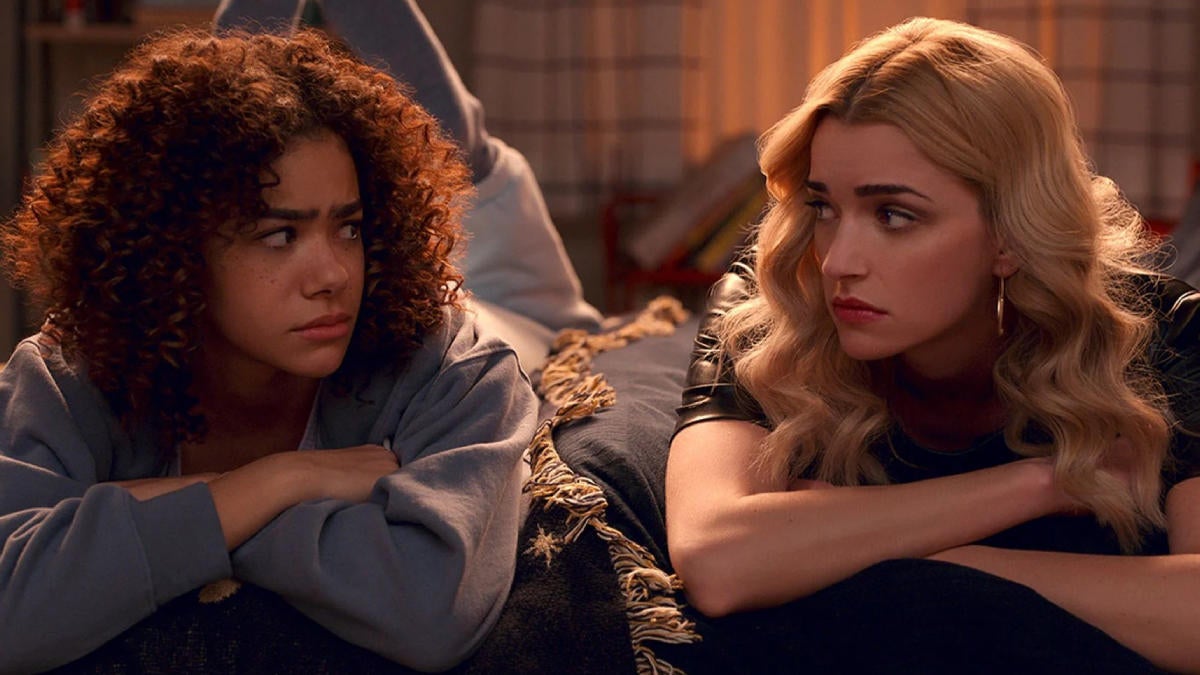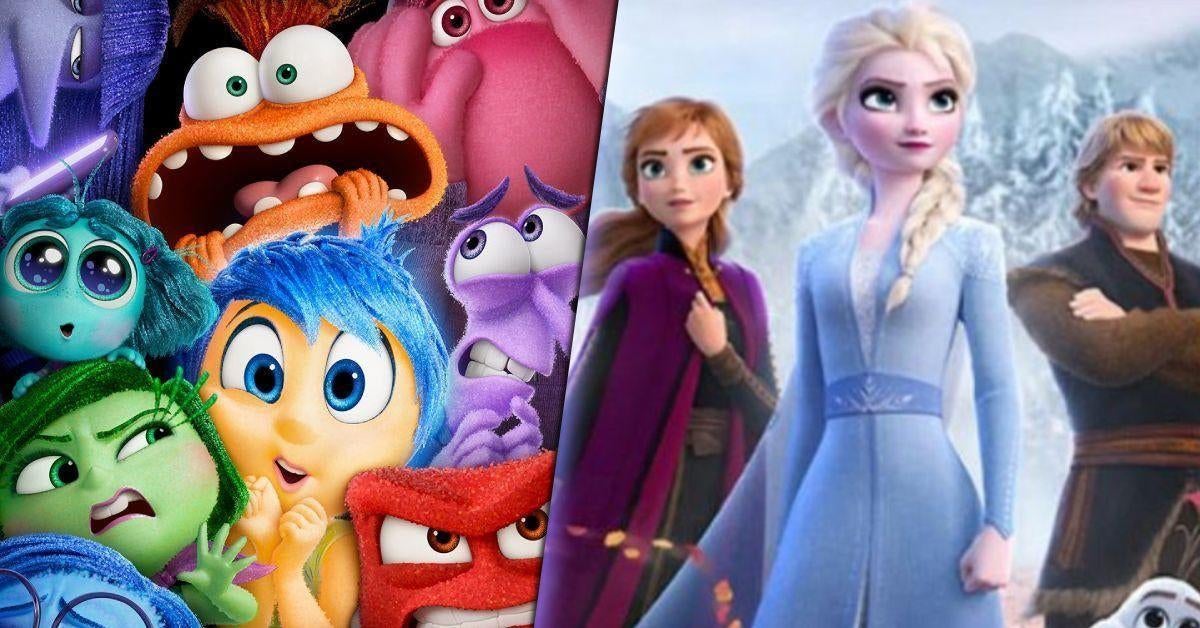Orphan Black: Echoes Review: A Scrappy, Surprising Addition to the Sestrahood
Krysten Ritter and Keeley Hawes star in AMC's new sequel to the sci-fi favorite.
In a world where franchises are spread increasingly thin, filling in arbitrary gaps of canon to the point of no return, your favorite television show earning a sequel can be an interesting conundrum. When an Orphan Black spinoff was first announced to be in the works in 2019, less than two years after the Emmy-winning cult classic had reached its poignant conclusion, there was absolutely no telling what shape it would take. The original series, and its passionate "Clone Club" fandom, have remained a cornerstone of my life and of my media tastes, one that could be perfectly preserved in my mind while the larger media landscape changed dramatically. Five years later, the ten-episode first season of Orphan Black: Echoes has not only calmed my worries, but it has helped justify the existence of a sequel series of its nature. While not without its flaws, Orphan Black: Echoes is a welcomed return to one of the best feminist fables of the 21st century, with plenty of meaningful surprises.
Set in the near future of 2052, Orphan Black: Echoes opens on the journey of Lucy (Krysten Ritter), a seemingly ordinary woman who has rebuilt a quiet life after a bizarre amnesiac episode. When that life gets threatened by her past, and the very nature of her existence, Lucy is sent on a drastic journey of self-discovery. This throws her into the orbit of teenage girl, Jules (Amanda Fix), and a mysterious doctor (Keeley Hawes), both of whom might hold the answers — if those answers aren't exploited by world-altering forces.
That description doesn't even begin to encapsulate the mystery at the center of Orphan Black: Echoes — in part because that mystery takes a good chunk of the season to properly reveal itself. Any heart-stopping twist on par with Orphan Black's inciting moments, in which Sarah Manning (Tatiana Maslany) watches an exact doppelganger of herself commit suicide by jumping in front of a train, does not occur in earnest until the season's midpoint. There is an admirable quality to this slow burn, as it does allow the viewer to acclimate themselves to the show's far-flung future before throwing it into disarray, but it might create a frustrating experience for new and old fans alike. Luckily, Echoes does bide its time in those early episodes by folding in Easter eggs and connections to its predecessor, but none are outright alienating for those jumping into the franchise first with this series. If you do count yourself to be a member of Clone Club, these ties create space to (thematically and occasionally literally) check in on an old friend, while also posing thorny questions about the series' central mystery.
Once the puzzle pieces of Echoes do begin to fall into place, the bigger picture is effective and genuinely surprising. The overarching plot of Season 1 carries over the franchise's approach to feminism and body autonomy in a way that never feels like an unused storyline from the original series (or its subsequent comic and audio drama adaptations). This is, in part, because some of its inspiration feels extremely prescient, as the fight for personal agency and the rise of misguided technocrats have unfortunately become more common in our real world than in our science fiction. There is a lot of cathartic fun in watching Echoes recontextualize those themes, all while remaining grounded in its various protagonists. Again, it is exasperating that Echoes takes half of its season to fully entrench itself in that conflict, but the end result is still entertaining and meaningful, in ways that creep up on you long after watching the episodes.
In a way, it's impossible to exactly recapture the dramaturgical and technical wizardry of Maslany's performances on the original Orphan Black — something that Echoes, for the most part, seems to recognize as well. Instead, especially in the latter half of Echoes' first season, the series crafts a different kind of magic between its ensemble cast of characters. Compared to many of Orphan Black's Leda clones, or even Ritter's most well-known roles of Marvel's Jessica Jones and Breaking Bad's Jane Margolis, it isn't as easy to assign Lucy a specific archetype. Performance-wise, Ritter utilizes that fact to find a lot of quiet empathy and mystery, turning her into a relatable everywoman even in the most impossible of circumstances. Without getting into spoilers, the scenes between Lucy and Fix's Jules quickly and consistently become one of the hearts of the series, and are downright exhilarating in the second half of the season. This will, hopefully, become the breakout role of Fix's career, because she delivers a liveliness and gravitas that is lacking in many actors twice her age.
The other heart of Echoes proves to be Hawes' key role, which I will not spoil here, even though it has already been heavily hinted at in some of the show's marketing. From the very first frame, her performance provides a unique two-way street between Echoes and the original text of Orphan Black — her triumphs and traumas are boosted by all that preceded her, while her mere existence as a fascinating and flawed woman strengthens an overlooked part of the original series. Hawes shoulders the weight of those connections with a captivating sense of grace, all while keeping her character incredibly accessible to newer audiences.
Another gimmick from the original series that Echoes chooses not to employ is setting up several wildly different social circles and mundane predicaments for its characters, and as a result, some of the larger ensemble cast feel a bit undercooked. But there are some standouts, particularly in the form of Lucy's endearing ally Craig (Jonathan Whittaker), and in the beauty and tragedy of the spoiler-heavy characters played by Rya Kihlstedt and Vinson Tran.
One of the biggest surprises of Echoes — which, at times, contributes to the dissonance of its initial viewing experience — is the series' aesthetics. While there are occasional moments of brilliance, Echoes does not consistently match a lot of the moody color grading and inventive cinematography of its predecessor. The distinctly sci-fi elements vary in execution as well, with some (unique city skylines and tubs of mysterious pink ooze) provoking a sense of fear and wonder, and others (inconsistently CGIed machines and boringly casual "futuristic" costuming) feeling like an afterthought. This doesn't prove to be a make-or-break element for Echoes, especially once the story kicks into high gear, but it does leave something to be desired when on the heels of the tactile techno-futuristic weirdness of the original show's Neolution movement. In other ways, the technical aspects of Echoes do provide a worthy follow-up to their predecessor, from returning composer Trevor Yule's mesmerizing work on the series' score to the melancholic and catchy theme song sung by Grammy-winning boygenius member Julian Baker.
Orphan Black: Echoes is, in a roundabout way, the perfect sequel series for its eponymous franchise. It is, often, a wholly unique individual, crafting a modern tale of personhood and science in a world that needs those stories more than ever. It is also, in necessary ways, aware of the sisterhood it is a part of, utilizing its decades-long jump into the future to dramatize how much growth and change we, as viewers, have endured in the six long years since the original Orphan Black wrapped. Bolstered by the great performances of its leading ladies and the heart of its core story, Orphan Black: Echoes is rewarding, even if it might take you a few episodes to fall down the rabbit hole.
Rating: 3.5 out of 5
Orphan Black: Echoes will premiere on Sunday, June 23rd on AMC, AMC+, and BBC America.




